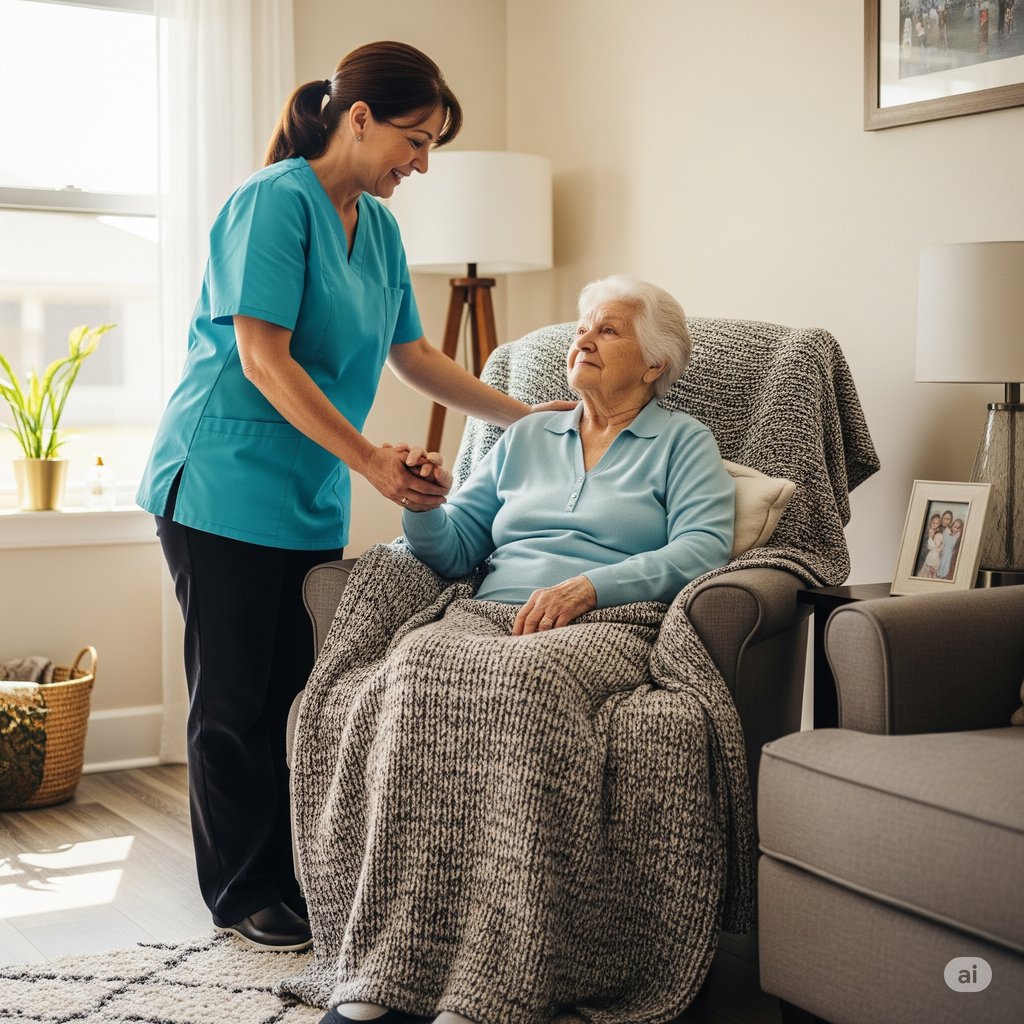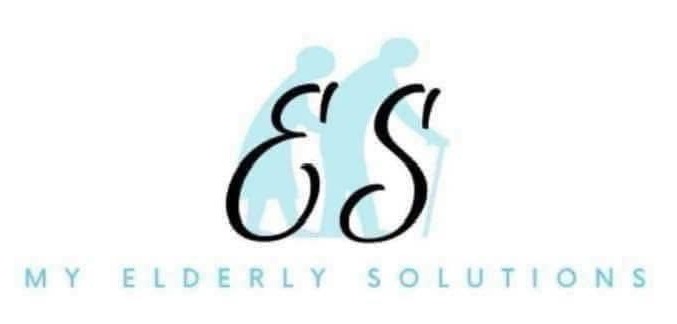Elderly Care
Compassionate Support for a Fulfilling Life
Teresa Miller
7/10/20258 min read


As our global population ages, the landscape of elderly care becomes an increasingly vital topic. For Millennials, Gen X, and Gen Z, who are often navigating careers, families, and their own evolving lives, understanding the nuances of "elderly care" is not merely an academic exercise, but a practical necessity. It's about ensuring our loved ones, who have contributed so much, receive compassionate support that truly fosters a fulfilling life in their later years. This comprehensive guide will delve into the various facets of elderly care, highlighting options, resources, and the importance of a holistic approach.
The concept of "elderly care" extends far beyond just meeting basic physical needs. It encompasses a spectrum of services and approaches designed to promote physical health, mental well-being, social engagement, and a continued sense of purpose and dignity for older adults. As we live longer, healthier lives, the focus shifts from mere survival to thriving in old age.
The Shifting Demographics and the Need for Proactive Planning
The demographic shift is undeniable. According to the U.S. Census Bureau, the population aged 65 and over is projected to grow significantly in the coming decades. This "graying of America" means that more families will be facing decisions about elderly care for their parents, grandparents, and other elder relatives. For younger generations, this reality necessitates proactive planning and open conversations. Understanding the options available before a crisis hits can alleviate stress and ensure better outcomes for everyone involved.
Diverse Care Options: Tailoring Support to Individual Needs
Elderly care is not a one-size-fits-all solution. The best approach depends on an individual's health, cognitive abilities, personal preferences, and financial situation. Here's a breakdown of common care options:
1. In-Home Care: Aging in Place with Support
For many, the comfort and familiarity of home are paramount. In-home care allows seniors to remain in their own residences while receiving assistance. This can range from a few hours a week to 24/7 support.
Companionship and Socialization: Beyond practical help, in-home caregivers can provide vital social interaction, helping to combat loneliness and isolation.
Personal Care: Assistance with activities of daily living (ADLs) such as bathing, dressing, grooming, and mobility.
Homemaker Services: Help with light housekeeping, laundry, meal preparation, and grocery shopping.
Skilled Nursing Care: For those with medical needs, registered nurses or licensed practical nurses can provide medication management, wound care, and other clinical services.
Respite Care: Short-term care provided to give primary caregivers a much-needed break. The Eldercare Locator (a public service of the U.S. Administration on Aging) can help you find resources for respite care in your area [1].
Public Resources for In-Home Care:
Eldercare Locator: This national service connects older adults and their caregivers with information on services and resources in their local communities. You can access it at https://eldercare.acl.gov/ or by calling 1-800-677-1116 [1].
National Institute on Aging (NIA): Offers extensive information on services for older adults living at home, including tips on finding meal delivery services like Meals on Wheels America (https://www.mealsonwheelsamerica.org/) and transportation assistance [2].
State and Local Area Agencies on Aging (AAAs): These agencies, often found through the Eldercare Locator, provide a range of services and resources, including referrals for in-home care, legal assistance, and elder abuse prevention [3].
2. Community-Based Programs: Fostering Engagement and Support
Beyond individual in-home services, communities offer various programs that support seniors and their caregivers.
Adult Day Care Centers: These centers provide a safe and engaging environment during the day, offering social activities, meals, and sometimes health services, allowing caregivers to work or take a break [2].
Senior Centers: Often run by local governments or non-profits, senior centers offer a hub for social activities, educational programs, fitness classes, and nutritious meals, promoting overall well-being and combating social isolation.
Transportation Services: Many communities offer specialized transportation for seniors to appointments, grocery stores, and social events, ensuring continued independence [2].
3. Residential Care Facilities: When More Structured Support is Needed
For seniors who require more consistent care or supervision than can be provided at home, residential care facilities offer structured environments with varying levels of support.
Assisted Living Facilities: These facilities provide assistance with ADLs, medication management, meals, and social activities in a homelike setting. They promote independence while offering readily available support. Information on assisted living facilities can often be found through state health departments.
Nursing Homes (Skilled Nursing Facilities): For individuals requiring 24-hour skilled nursing care, rehabilitation services, or complex medical management. Medicare's Care Compare tool (https://www.medicare.gov/care-compare/) allows you to search for and compare Medicare-certified nursing homes based on location and quality of care [4].
Important Considerations for Residential Care:
Cost: The cost of assisted living and nursing home care can be substantial. Understanding payment options, including long-term care insurance, Medicare (limited coverage for skilled nursing), and Medicaid (for those with low income and resources), is crucial [5]. Resources like LongTermCare.gov (https://acl.gov/ltc) can provide information on paying for care [1].
Licensing and Regulation: Ensure any facility you consider is properly licensed and regulated by your state. Public records of complaint investigations and annual survey results for certified nursing homes are often available through state health department websites, such as the Mississippi State Department of Health [6].
The Role of Technology in Elderly Care
Technological advancements are revolutionizing elderly care, offering innovative solutions for monitoring, communication, and well-being.
Remote Patient Monitoring: Wearable devices and smart home sensors can track vital signs, activity levels, and detect falls, providing peace of mind for families and enabling timely intervention [7].
Telehealth: Virtual appointments with doctors and specialists can make healthcare more accessible, especially for those with mobility issues or living in rural areas [7].
Communication Tools: User-friendly tablets and voice-activated assistants help seniors stay connected with loved ones, reducing feelings of isolation.
AI-Enabled Platforms: Emerging AI technologies can assist with health monitoring and provide personalized care recommendations [7].
Addressing Caregiver Well-being: A Crucial Component of Compassionate Support
The burden on family caregivers can be immense, leading to burnout, stress, and health issues. Recognizing and addressing caregiver needs is an integral part of providing compassionate elderly care.
Support Groups: Connecting with other caregivers can provide emotional support, shared experiences, and practical advice.
Respite Care: Utilizing respite services, as mentioned earlier, is essential for caregivers to take breaks and recharge.
Caregiver Education and Training: Resources from organizations like the National Institute on Aging (NIA) and the Administration for Community Living (ACL) offer guides and information for caregivers [8].
Government Programs: The Department of Veteran Affairs (VA) Caregiver Support Program, for example, offers clinical services, education, training, and sometimes financial stipends for caregivers of eligible veterans [9].
Financial and Legal Planning: Resources like the Consumer Financial Protection Bureau (CFPB) offer guides for managing someone else's money, which is often a significant aspect of caregiving [10].
Intergenerational Connections: Enriching Lives Across Ages
A truly fulfilling life, regardless of age, often involves meaningful social connections. Intergenerational programs, where younger and older generations interact, offer profound benefits for everyone involved.
Combating Isolation: These programs reduce loneliness in seniors by fostering connections and a sense of belonging [11].
Improved Health and Purpose: Research indicates that participation can lead to better long-term health and a heightened sense of purpose for seniors, as they share their wisdom and experiences [11].
Cognitive Stimulation: Engaging in activities with younger individuals stimulates cognitive functions, helping to maintain mental acuity [11].
Empathy and Understanding: Younger generations gain empathy, learn valuable life lessons, and break down stereotypes about aging [11].
Conclusion: A Collaborative Journey Towards Fulfilling Lives
Elderly care is a complex yet profoundly rewarding journey. For Millennials, Gen X, and Gen Z, it's about shifting perspectives from a reactive response to a proactive, compassionate approach. By understanding the diverse care options, leveraging available public resources, embracing technological advancements, supporting caregivers, and fostering intergenerational connections, we can collectively ensure our elders receive the compassionate support they deserve for a truly fulfilling life. It's a testament to the values of respect, dignity, and love that bind generations together.
For elderly care in the Mississippi area visit our website:
Public Domain Sources and Data Links:
[1] Eldercare Locator: A Public Service of the U.S. Administration on Aging. Available at: https://eldercare.acl.gov/ and https://www.nia.nih.gov/health/caregiving/services-older-adults-living-home
[2] National Institute on Aging (NIA): Services for Older Adults Living at Home. Available at: https://www.nia.nih.gov/health/caregiving/services-older-adults-living-home
[3] Mississippi Department of Human Services: Finding Services for Older Adults (example of state-level resources). Available at: https://www.mdhs.ms.gov/aging/finding-services-for-older-adults/
[4] Medicare.gov: Find Nursing Homes. Available at: https://www.medicare.gov/care-compare/?redirect=true&providerType=NursingHome
[5] HHS.gov: FAQs Category: Medicare and Medicaid. Available at: https://www.hhs.gov/answers/medicare-and-medicaid/index.html and Medicaid.gov: The Official U.S. Government Site for Medicaid and CHIP Services. Available at: https://www.medicaid.gov/
[6] Mississippi State Department of Health: Nursing Home Search (example of state-level regulatory information). Available at: https://msdh.ms.gov/page/30,0,83,780.html
[7] Seniorsite: Future Trends in Senior Care: Navigating the Landscape in 2025. Available at: https://seniorsite.org/resource/future-trends-in-senior-care-navigating-the-landscape-in-2025/
[8] HHS.gov: Resources for Caregivers. Available at: https://www.hhs.gov/programs/providers-and-facilities/resources-for-caregivers/index.html
[9] VA Caregiver Support Program Home. Available at: https://www.caregiver.va.gov/
[10] Consumer Financial Protection Bureau (CFPB): Managing someone else's money. Available at: https://www.consumerfinance.gov/consumer-tools/managing-someone-elses-money/
[11] Willows Healthcare: The Benefits of Intergenerational Programs in Senior Care Facilities. Available at: https://www.willowshealthcare.com/blog/the-benefits-of-intergenerational-programs-in-senior-care-facilities and Rosewood Nursing: The Benefits of Intergenerational Programs in Senior Care. Available at: https://www.rosewood-nursing.com/post/the-benefits-of-intergenerational-programs-in-senior-care
Legal Disclaimer: This blog post is intended for informational purposes only and does not constitute legal, medical, or financial advice. The information provided is general in nature and may not apply to your specific circumstances. Always consult with qualified professionals for personalized advice regarding elderly care, legal matters, medical conditions, or financial planning.
AI Disclosure: This content was generated by an AI assistant based on publicly available information and data. While efforts were made to ensure accuracy and relevance, readers are encouraged to verify information from primary sources and consult with experts for critical decisions.
My Elderly Solutions Plus
Disclosure: "This site uses affiliate links. We may earn a small commission from qualifying purchases made through these links, at no extra cost to you."
Credits: Gemini AI Images
Assisting you to remain
independent and strong at
home.
Services Include:
*Elderly Care
*Assistance with the
activities of daily living.
*Assistance with
housekeeping and cooking.
*Oversees medical &
household management.
*Relocation services
nationwide.


MY ELDERLY SOLUTIONS
We are a non-medical service covering Gulfport. Mississippi and surrounding areas. We assist you to remain independent & strong at home or facility. We have a 4-hour minimum. All assistants have background checks and fingerprints on file with the state.
Elderly Care
24/7 Sitters- We come into the home, hospital, nursing home, to assist with non-medical care.
Cooking- We assist with meal preparation using you recipes or healthy alternatives.
Housekeeping- We assist with light housekeeping and home organization.
Errands= We assist with doctor appointments or daily activities.
Medical/Household Management- Assist with record keeping of appointments and assist with incoming mail to keep the home running smoothly.
Relocation Services- Assist with packing all personal belongings, hire movers, set up estate sales, get home ready for rent/sale, escort nationwide, unpack, then assist with finding local services.
We are here to you and your adult children in navigating this time to help with the next chapter of your lives. If we cannot, we will find someone who can. That is MY ELDERLY SOLUTIONS.

